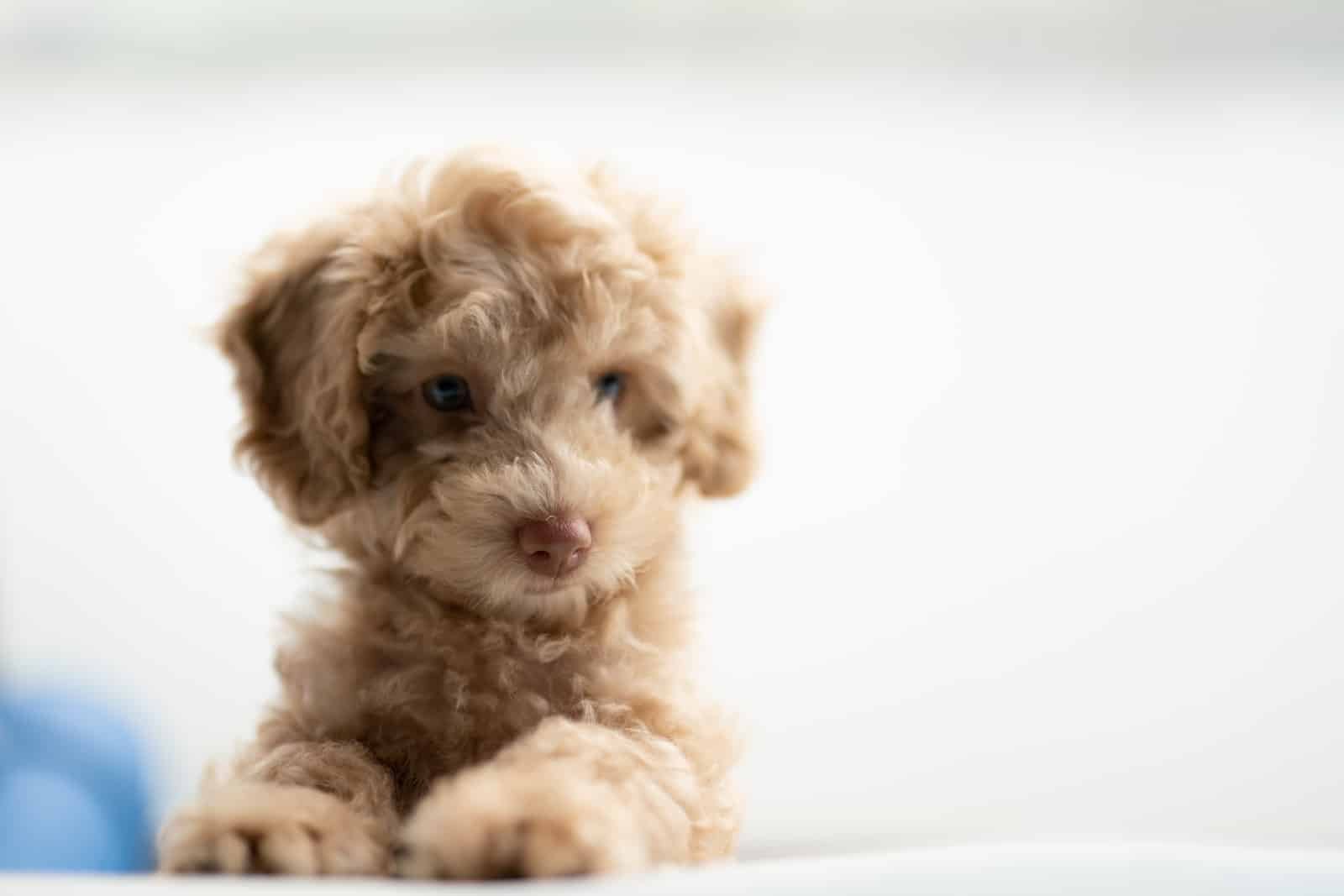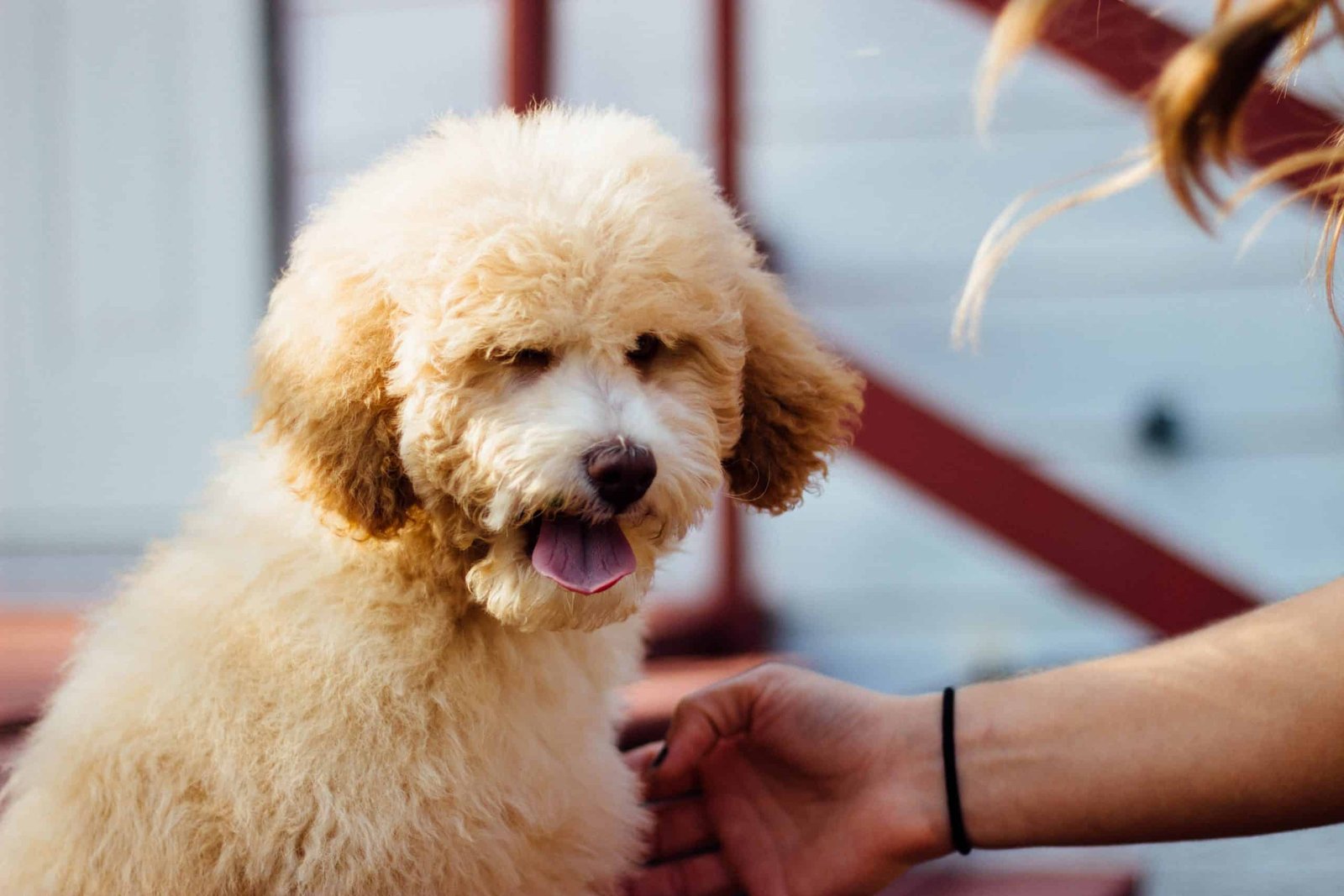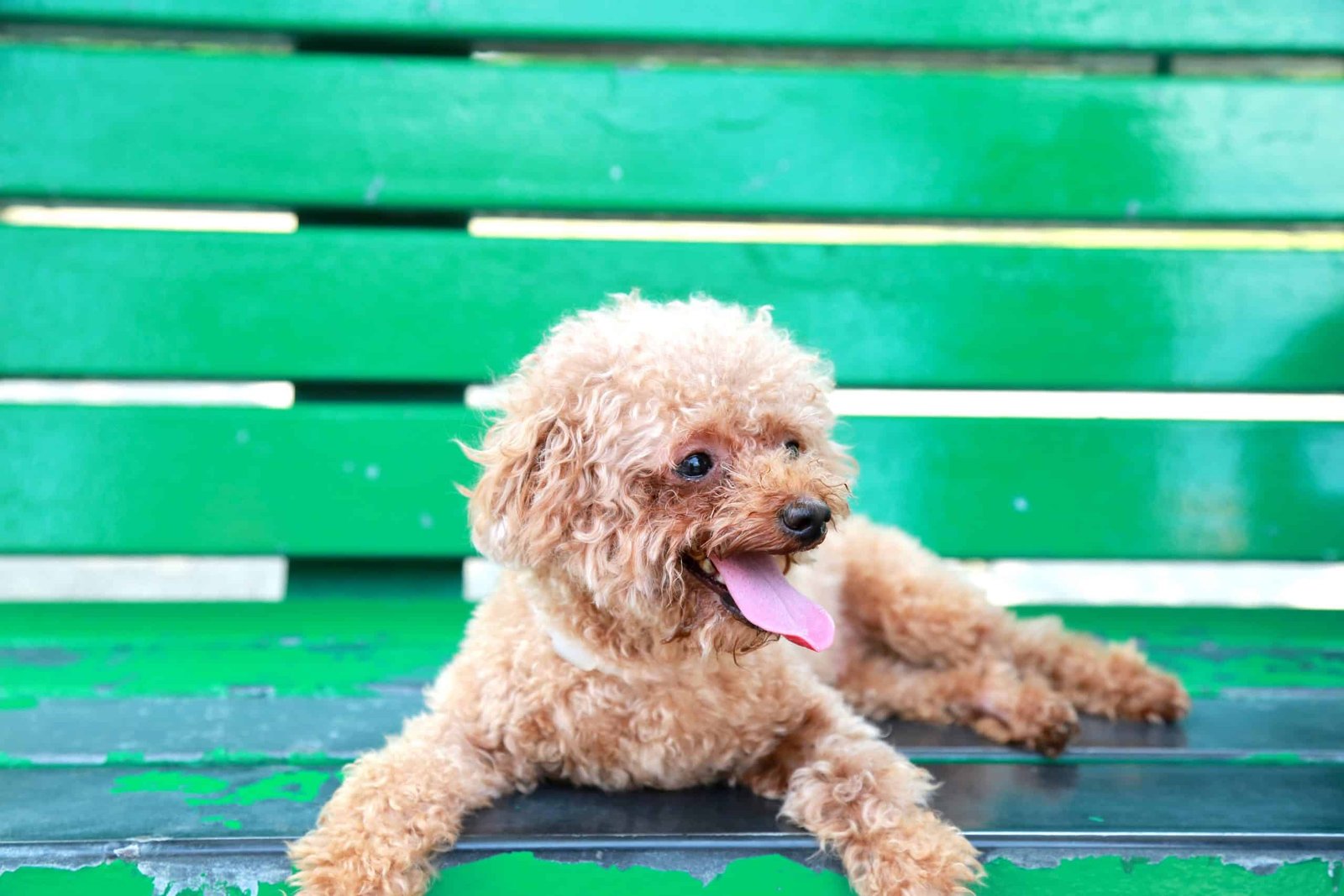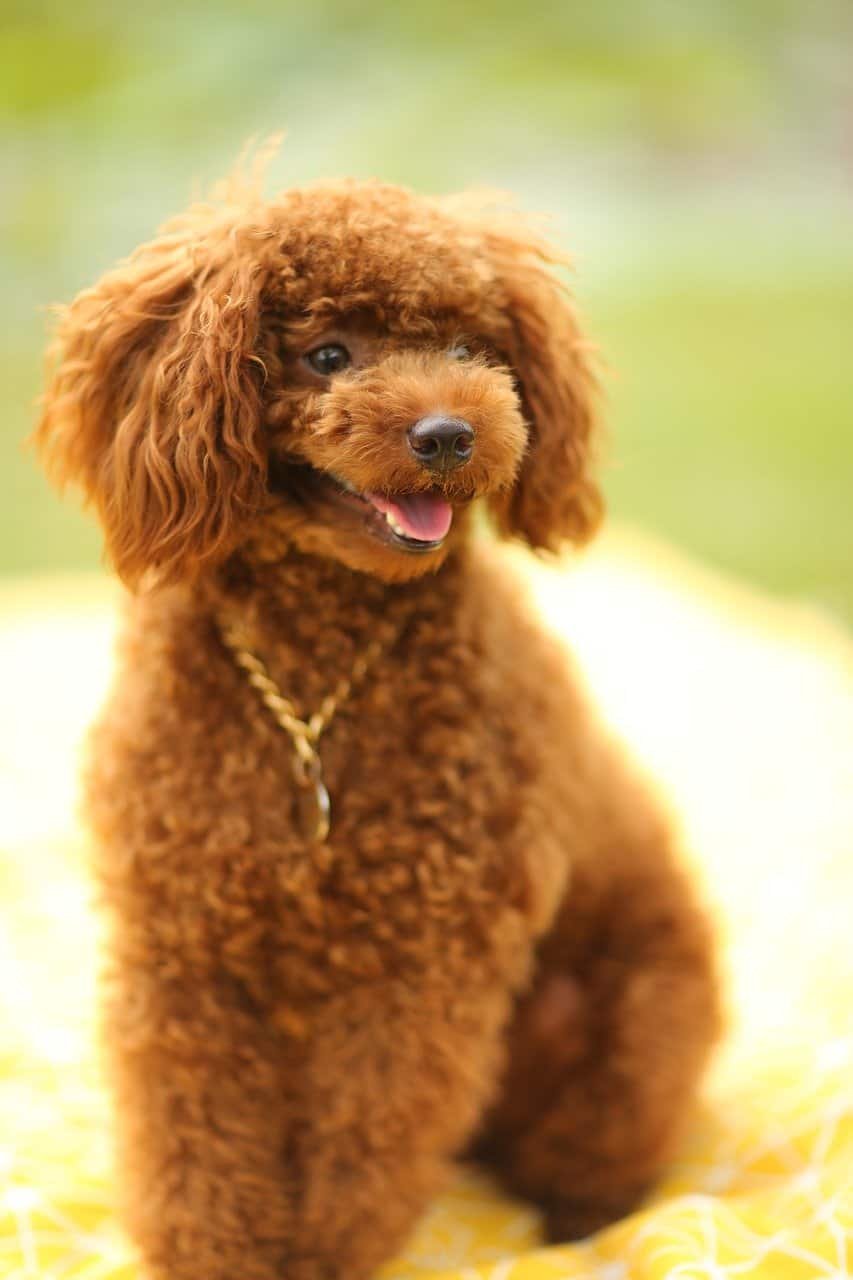
The toy poodle has been a popular choice for families around the world for centuries. Their intelligence, loyalty, and small size make them an ideal companion. But these cute puppies are more than just a pretty face – they come with their own unique set of characteristics and needs that must be considered when considering one as a pet. From their history to coat variations and health considerations, this article will explore all that you need to know about toy poodle puppies. So if you’re looking for a furry friend who can bring years of joy and love to your home, read on!
From Our Experience: As poodle enthusiasts who have worked with hundreds of poodle owners and rescue organizations over the years, we’ve gathered real-world insights that go beyond textbook knowledge. The information in this article reflects both professional expertise and hands-on experience with poodles of all sizes and temperaments.
What Is a Toy Poodle?
Toy poodles are a breed of small dogs that originated in France in the 18th century. They stand just 8-10 inches tall, and come in three varieties: toy, miniature, and standard. Toy poodles are the smallest of the three and typically weigh between 4-6 pounds. They have curly coats that come in a wide range of colors, including white, black, apricot, silver, gray, and brown.
Toy poodles are known for their intelligence and high energy level. They make great family pets since they’re loyal to their owners and require plenty of mental stimulation to stay happy. They also need lots of positive reinforcement training, as they can suffer from separation anxiety if left alone too often. Toy poodles may be ideal for people with allergies since they shed little fur or dander compared to other popular dog breeds, like retrievers or German shepherds.
Related Reading: Find Poodle Puppies Near You – Local Adoption Guide
Related Reading: Poodle Puppy Rehoming Guide – Ethical Adoption Process
Related Reading: Poodle Puppy Breed Guide – Choosing the Right Size
Related Reading: Parti Poodle Puppies
Overall, toy poodles are a healthy breed that can live 12-15 years if properly cared for. They can have either a corded coat or clipped coat depending on what look you prefer and their barking level is moderate, so it won’t disrupt your neighbors too much!
History of the Toy Poodle
Toy poodles have been around since the 18th century, having originated in France. They were initially bred as working dogs, but eventually strengthened into the beloved companion animals they are today. Toy poodles are the smallest of three varieties of poodle, standing just 8-10 inches tall and typically weighing 4-6 pounds. They have curly coats that come in a variety of colors such as white, black, apricot, silver, gray and brown.
Toy poodles are renowned for their intelligence and energy level. They make great family pets as they’re loyal to their owners and require plenty of mental stimulation to stay happy. They’re also one of the smartest dog breeds, so they can learn tricks easily with positive reinforcement training. Toy poodles may be ideal for people with allergies since they do not shed much fur or dander compared to other popular dog breeds, like retrievers or German shepherds. Toy poodles are a healthy breed that will bring joy to any home if properly cared for!
Characteristics of the Toy Poodle
Toy poodles are known for their intelligence, activity level and wide range of personality traits. They’re one of the most popular toy breeds because of their loyal nature, high trainability and low-shedding coat. Toy poodles typically have a curly, corded coat that comes in a variety of colors such as white, black, apricot, silver, gray and brown. Their size makes them ideal for apartment living or even traveling since they need little space to be happy.
In terms of temperament, toy poodles are usually friendly and gentle with people but may bark more than other dog breeds due to their alertness. They’re also very social, so it’s best to keep them around other dogs after introducing them gradually. While some toy poodles can develop separation anxiety if left alone too often, proper training can help minimize this issue.
Overall, toy poodles make wonderful companions for anyone looking for a small and intelligent pup! With regular exercise and plenty of mental stimulation, these lively dogs will bring joy to any home.
Appearance
Toy poodles are a toy breed of dog that’s known for its intelligence, activity level and wide range of personality traits. These small dogs usually have curly coats that come in many colors,, such as white, black, apricot, silver, gray and brown. They typically weigh between four to six pounds and stand up to 14 inches tall. Despite their size, they’re despite their size, toy poodles are healthy breeds with few health issues. With proper exercise and a balanced diet, they cadiet,ve up to 15 years or more. Toy poodles also have an excellent reputation for being highly trainable because of their willingness to please. Positive reinforcement works best when it comes to training these smart little dogs, which is why they’ve become one of the most popular breeds over the centuries since first becoming popular in the 18th century.
Size and Weight
Toy poodles are known for their small size and lightweight. These petite pooches weigh in between four to six pounds and stand up to 14 inches tall. Despite their diminutive size, toy poodles possess an impressive energy level that many people find endearing.
Toy poodles have a unique coat that is both curly and corded, much like the standard poodle’s. Besides being easy to groom, this type of coat also helps protect the dog from dirt and debris while it plays. This breed is available in several colors,, including white, black, apricot, silver, gray and brown. These color varieties make toy poodles one of the most popular breeds around the world.
One thing that sets toy poodles apart from other breeds is their small size and weight makes them ideal for families with allergies, since they don’t shed as much as larger dogs do. They’re also great for people living in apartments or who don’t have access to a yard since they can get plenty of exercise indoors through playtime or walks around the block.
Coat and Color Variations
Toy poodles are known for their unique and stylish curly coats, which have been popular since the 18th century. This breed also has a wide range of coat colors, including white, black, apricot, silver, gray and brown. These varieties make toy poodles one of the most popular dog breeds around the world.
The breed’s coat comprises both curly and corded fur that helps keep dirt and debris away from the pup’s sensitive skin. The coat can be groomed easily and requires regular brushing to prevent any tangles or mats from forming.
The combination of a small size and lightweight makes them ideal for families with allergies, since they don’t shed as much as larger dogs do. They’re also great for people living in apartments or who don’t have access to a yard since they can get plenty of exercise indoors through playtime or walks around the block. Toy poodles make excellent family pets because of their upbeat attitude and low-level of barking. With proper training and positive reinforcement techniques, owners can help curb any separation anxiety issues these pups may have. Mental stimulation is key to keeping these intelligent dogs happy, so it’s important to provide lots of opportunities for games and playtime with your pup!
Temperament and Behavior
Toy poodles are known for their sweet and gentle temperaments, making them ideal family pets. They’re intelligent and highly obedient, so they require consistent training to stay well-behaved. Toy poodles are very active dogs that need plenty of exercise to stay healthy. They prefer short walks or playing fetch in the yard rather than long hikes or runs. They’re also very social creatures that get along great with other animals and people, making them perfect for families with kids. With proper training and lots of love, toy poodles can become a loyal companion that will be by your side for many years to come.
Toy poodles are also alert guard dogs who will bark when strangers approach your home or if there’s something out of the ordinary happening around them. To prevent excessive barking, its important to provide plenty of mental stimulation through activities such as playtime or interactive toys like puzzles. By providing your pup with lots of attention and affection, you can help establish a strong bond between you two that will last forever!
Energy Level and Activity Needs
Toy poodles are known for their high energy levels, making them the perfect companion for active owners. They need plenty of physical and mental stimulation to stay healthy and happy. Daily walks or runs, playing fetch in the yard, interactive toys like puzzles and chew toys, and regular training sessions are all great ways to keep your pup entertained. Activities such as agility courses or dog sports can also be very beneficial for toy poodles by providing both physical and mental exercise.
It’s important to give your pup enough time to rest in between activities so they don’t become overly tired or stressed out. Toy poodles have a tendency to become anxious if not given enough attention or stimulation, so it’s important to regularly spend time with them and provide them with plenty of love and affection. By providing your pup with an abundance of activity and playtime, you will create a strong bond between you two that will last forever!
Trainability and Intelligence Levels
Toy Poodles are very intelligent and easily trainable. They respond well to positive reinforcement, such as treats and verbal praise, which makes them a great fit for most homes. Toy Poodles can learn commands quickly and easily, which is why they’re often used in agility courses or other dog sports. Their intelligence also makes them ideal for people who want a companion that will listen to their commands and obey them without hesitation.
Toy Poodles have been around since the 18th century when they were bred as companion dogs for wealthy French families. As a result, they’ve become one of the most popular dog breeds today because of their intelligence, loyalty, and affectionate personalities. Toy Poodles is known to be one of the smartest dog breeds out there with some even ranking among the top 10 smartest breeds.
Overall, Toy Poodles are an excellent choice for those looking for an intelligent and loyal companion. They’re easy to train and bond strongly with their owners, providing years of companionship and love!
Barking Tendencies
Toy Poodles are silent dogs, and the barking tendencies of a Toy Poodle should not be underestimated. The amount of barking that a Toy Poodle will do depends on their personality and their environment. Some Toy Poodles may bark more than others, but overall they are silent.
Toy Poodles typically only bark when there is something out of the ordinary or something that arouses their interest, such as strangers in the yard or noises from outside. They can also bark when they want attention, are excited, or feel threatened. If you find your Toy Poodle is barking excessively, it’s important to address it right away to ensure that it doesn’t become an ongoing problem.
In order to reduce excessive barking, owners should establish rules and boundaries with their Toy Poodle and provide plenty of mental stimulation and exercise to keep them occupied. Proper socialization and training can also help ensure that your pup knows what behaviors are acceptable and which ones are not. Making sure your Toy Poodle is getting enough rest can help prevent them from becoming over-stimulated or bored, which can lead to excessive barking.
Overall, Toy Poodles have relatively low barking tendencies compared to other breeds but it’s still important for owners to make sure they understand their pup’s individual needs in order to keep them happy and healthy!
Possible Separation Anxiety Issues
Toy Poodles, like all dogs, can suffer from separation anxiety when left alone. Separation anxiety is a behavior condition in which the pup becomes distressed and shows signs of fear or apprehension when they are separated from their owner. Common signs of this issue include excessive barking, destructive behaviors such as chewing furniture or items in the home, and inappropriate elimination.
If you think your Toy Poodle may suffer from separation anxiety, it’s important to act quickly and seek professional help right away. A veterinarian or certified animal behaviorist can offer advice on how to best manage the situation and help get your pup back on track.
When it comes to treating separation anxiety in Toy Poodles, positive reinforcement is key. Providing them with plenty of exercise and mental stimulation throughout the day can help keep them occupied while you’re away, as well as provide opportunities for bonding between you and your pup. Providing an environment full of toys and treats that will encourage playtime during periods of being left alone can help keep them distracted from feeling anxious when you leave the house. If possible, having another pet in the home can also provide companionship for your Toy Poodle, which can reduce their feelings of loneliness when you’re not around.
It’s important to remember that everyone needs a little extra love sometimes, including our four-legged friends! With patience and consistency, you can help your Toy Poodle overcome any issues with separation anxiety they may be experiencing.
Health Considerations of Toy Poodles
Toy Poodles are known for being a healthy breed of dog, but like all breeds, they are prone to certain health issues. It is important for owners to be aware of the potential risks and take proper precautions to ensure their pup’s wellbeing.
One of the most common issues Toy Poodles can face is hip dysplasia. This condition occurs when the hip joint does not fit together properly and can cause pain, stiffness, and even lameness in severe cases. It is important to have your pup’s hips checked by a veterinarian regularly as early detection is key to successfully managing this condition.
Another issue Toy Poodles may encounter is progressive retinal atrophy (PRA). This eye disorder causes gradual vision loss over time and can affect one or both eyes depending on the severity. It is recommended that Toy Poodles receive regular eye exams from an ophthalmologist in order to detect any signs of PRA as soon as possible.
Finally, Toy Poodles are also prone to allergies, which can cause skin irritation and discomfort. If you think your pup may be suffering from allergies, it’s best to consult with a veterinarian who can help identify the root cause and prescribe medication or other treatments if necessary.
Overall, Toy Poodles are considered a healthy breed, but it’s important for owners to stay vigilant about potential health concerns so they can catch any issues early on and provide their pup with proper care.
Popularity as Family Pets
Toy Poodles are one of the oldest and most popular breeds of dogs, having been bred since the 18th century. They are also one of the smartest and most loyal dog breeds, making them great family pets. Not only are they low-maintenance and easy to train, but their small size makes them perfect for people with allergies or limited space.
Toy Poodles come in a wide range of sizes, from miniature (4-6 pounds) to standard poodles (45 pounds or more). They have a unique coat that can be curly or corded and come in almost any color imaginable. Their energy level is typically moderate, so they require regular walks, playtime and mental stimulation to stay healthy and happy.
The key to successful ownership with Toy Poodle puppies is positive reinforcement and consistency. This breed can suffer from separation anxiety if left alone for too long, so it’s important to provide plenty of love and affection when your pup is around.
Overall, Toy Poodles make wonderful family pets as they are loving companions that thrive on attention and interaction with humans. With proper care, training and lots of love, these pooches will reward you with years of companionship!
People With Allergies
People with allergies can still enjoy the companionship of a Toy Poodle puppy. This breed is considered a hypoallergenic dog, meaning it produces fewer allergens than other breeds and thus is less likely to produce an allergic reaction. They have a single layer coat that requires minimal grooming, and their small size also helps. With regular brushing, vacuuming and cleaning, people with allergies can keep their Toy Poodle pet healthy and free from allergens.
Toy Poodles are not only ideal for those with allergies, but they are also great for anyone looking for a loving companion. These pups are loyal, affectionate, and smart, making them the perfect addition to any family. They thrive on human interaction, so providing plenty of love and attention will help ensure your pup’s health and happiness.
For those considering getting a Toy Poodle puppy but worried about allergies, rest assured they make an excellent pet choice! With proper care, grooming and training, they can be kept healthy while providing years of love and companionship!
Healthy Breed Compared to Other Toy Breeds
Toy poodles are known for being a healthy breed compared to other toy breeds. They originated in Germany over the 18th century and have become one of the most popular dog breeds because of their intelligence, loyalty and affectionate nature. These small dogs come in three different sizes – standard, miniature and toy – and range from 4 to 6 pounds in weight. Toy poodles are known for their curly coats that come in a wide variety of colors, with corded coat types also available.
Their energy level is usually higher than other toy breeds, but they don’t require as much physical exercise as larger breeds. Instead, they need plenty of mental stimulation to keep them active and engaged. Positive reinforcement training is the best way to ensure your pup learns quickly while remaining happy and content.
Toy poodles are excellent family pets thanks to their low barking levels and minimal shedding coats, but they can suffer from separation anxiety if left alone for long periods of time. With regular exercise, attention and love, however, these smart pooches make great companions!
Care for a Toy Poodle Puppy
Toy poodle puppies are a great addition to any family, as they are loyal and affectionate. They require regular exercise, attention, and love in order to remain happy and content. Because of their size, toy poodles don’t need as much physical activity as larger breeds, but they do require plenty of mental stimulation. Positive reinforcement training is the best way to ensure your pup learns quickly while remaining happy and content.
It’s important to groom your toy poodle puppy regularly to keep their coat healthy and free of mats or tangles. Brushing should be done at least once a week with a slicker brush and combed through carefully every few days. Regular bathing is also important – typically every two weeks – using a mild shampoo specifically designed for dogs.
People with allergies may opt for the hypoallergenic miniature or standard poodles because of the low-shedding coats they possess, but all three sizes make excellent companions regardless of their coat type. As one of the smartest dog breeds on the planet, toy poodle puppies will brighten up any home with their playful personalities!
Mental Stimulation Requirements
Mental stimulation is an important part of caring for a toy poodle puppy. Without it, they can become bored and frustrated, leading to destructive behaviors or anxiety. To keep your pup mentally engaged, provide them with interactive toys such as puzzles, tug-of-war ropes, chew toys, and obstacle courses. Give your pup plenty of opportunities to explore the outdoors; take them for walks and let them sniff around to investigate their environment. Training is another great way to stimulate their minds; teaching simple commands like “sit” or “stay” is a fun activity that will help build obedience. Finally, don’t forget about snuggles and playtime; cuddling up on the couch or playing fetch in the backyard are great ways to bond with your toy poodle puppy while simultaneously stimulating their body and mind.
Positive Reinforcement Training Techniques
Positive reinforcement training is a popular technique for teaching new behaviors and obedience to your toy poodle puppy. This method involves rewarding good behavior with treats, praise, or even affection in order to reinforce the desired action. For example, when your pup sits on command, you can reward them with a treat and verbal praise. Similarly, if they stop barking when asked, you can offer them a pat on the head or a scratch behind the ears as positive reinforcement. It’s important to remember that positive reinforcement should never involve punishment; instead of punishing bad behavior, redirect it towards something more appropriate and reward good behavior for best results. With consistency and patience, your toy poodle puppy will soon learn that desirable actions are rewarded while undesirable behaviors are ignored.







